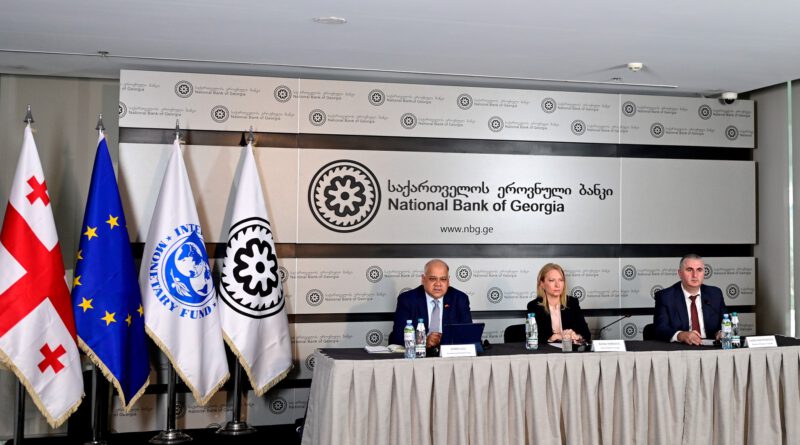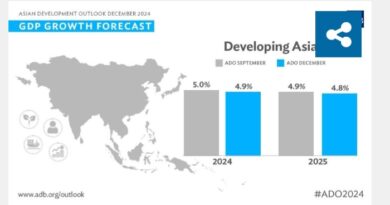IMF MISSION RECAP OF VISIT TO GEORGIA AT NBG HEADQUARTERS
A joint briefing was held at the National Bank of Georgia (NBG) with Subir Lall, Deputy Director, Middle East and Central Asia Department at International Monetary Fund (IMF), Natia Turnava, Acting Governor of the NBG, and Lasha Khutsishvili, Minister of Finance, summarizing the recent IMF Mission to Georgia under Article IV Consultations.
Subir Lall noted, that economic growth of 5.7% is expected this year, driven by increased real wages and employment. “In 2023, inflation in Georgia sharply decreased due to a strong lari, low consumer prices, and tight monetary policy. We anticipate inflation reaching 4% by year-end.”
Natia Turnava thanked the IMF Mission for productive discussions and consultations, highlighting the IMF’s crucial support. She stated, “Georgia has maintained a low-inflation environment, with inflation below the 3% target since 2023. Recent inflation decrease is attributed to lower inflation in locally produced goods and reduced inflation expectations from tighter monetary policy. This allowed us to gradually ease the policy, reducing the policy rate by 2.75 percentage points overall.”
Natia Turnava also touched upon the geopolitical risks and the unpredictability of geopolitical events. Addressing the challenges, the Acting Governor of the NBG also discussed the high level of de-dollarization and emphasized that the NBG continues to actively pursue its de-dollarization policy.
Natia Turnava stated, “While we’ve seen improvements in reducing dollarization in deposits, which is a crucial positive development. However, the level of dollarization remains high, as highlighted by international rating agencies. This underscores the need for us to persist with our de-dollarization policy to safeguard non-hedged borrowers from currency risks. To mitigate these risks, the NBG has imposed additional requirements on financial institutions, increasing the limit on non-hedged foreign currency loans to 300,000 GEL from January 1, 2024.”
Regarding the banking sector, Natia Turnava highlighted its stability, noting that it had fully recovered buffers used during the pandemic and that the sector maintains sound capital and liquidity: “Asset quality has improved, with the level of non-performing loans at its lowest in recent decades. The banking sector experienced positive profitability in 2023 due to reduced credit losses. Improved financial indicators have enhanced the sector’s stability against shocks, as confirmed by stress test results. Credit activity remains sustainable, and the negative gap in the loans-to-GDP ratio is narrowing. Business lending is the primary driver of loan growth, contributing to the economy’s productivity.”



